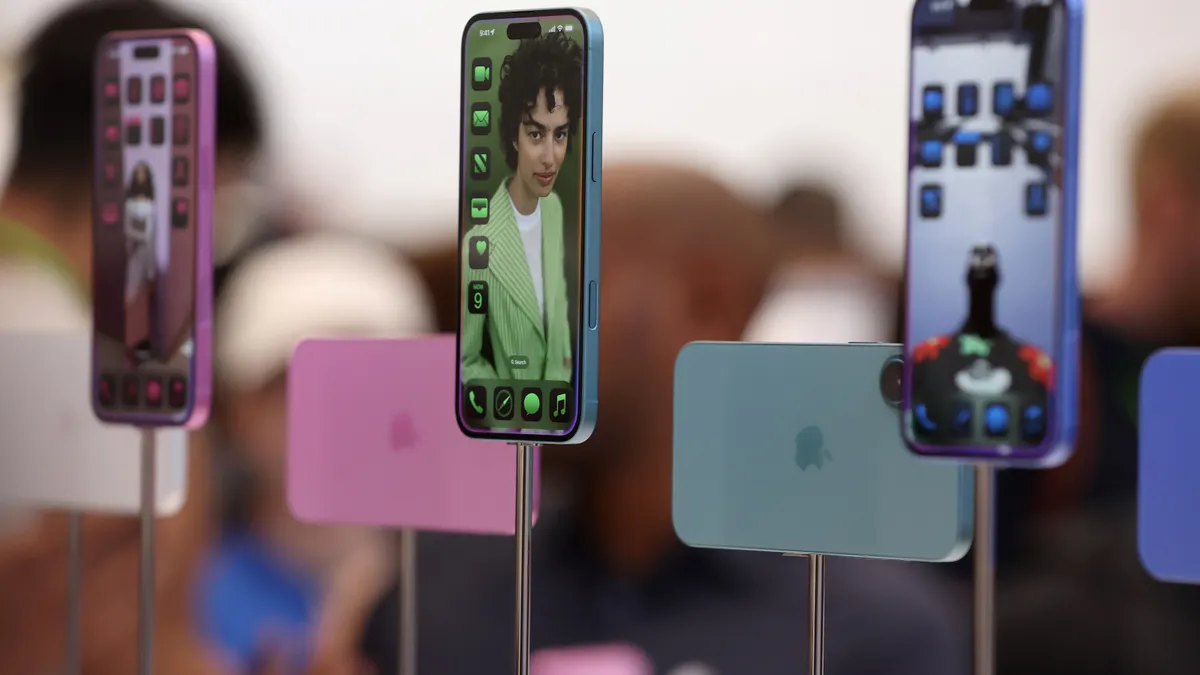Dive Brief:
- Apple, Visa and Mastercard won dismissal last week of a lawsuit filed by merchants alleging that the technology giant took money from the two largest U.S. card networks to avoid building a competing payment system that would have lowered fees on card purchases.
- The merchants, led by Mirage Wine & Spirits of O’Fallon, Illinois, failed to show evidence that Apple had considered establishing its own payment network to challenge the incumbents, U.S. District Judge David Dugan ruled July 9 in the Southern District of Illinois, dismissing the lawsuit. However, the merchants can amend and refile their complaint, he said.
- Attorneys for the merchants, Apple and Visa did not respond to emails Friday seeking comment. Mastercard has no comment on the case, a spokesperson said.
Dive Insight:
For decades, merchants have pursued antitrust complaints against Visa and Mastercard, seeking damages over the interchange fees the networks assess retailers, restaurants and other businesses when a consumer pays with a credit or debit card.
The federal court case, filed in December 2023 by Mirage and four other local merchants, included Apple as a defendant. Apple accepted “a very large and ongoing cash bribe” from Visa and Mastercard to avoid competing with them, which was worth hundreds of millions of dollars per year, according to the complaint.
Dugan found that plaintiffs had offered “a slew of circumstantial allegations” about the defendants’ actions in payments but those are “too speculative and conclusory” to “adequately represent” antitrust law violations.
The judge said he was persuaded by Apple’s arguments about “the allegations that it could succeed in the seemingly monumental task of disintermediating Defendants Visa and Mastercard from the payment network market.”
The merchants may be correct that Apple “was uniquely situated to reap the high potential reward for disintermediating Defendants Visa and Mastercard from the payment network market; however, their allegations completely ignore the difficulties, costs and time, risks, and potential for failure associated with such an endeavor,” he wrote in the order.
The notion of Apple as a market player paid off to avoid competing also figures heavily in allegations the Justice Department made last year, accusing Visa of operating an illegal monopoly in the debit card market.
Apple was one of the potential network competitors to Visa the government cited in its September lawsuit, which also identified PayPal Holdings and Square as likely payment rivals, if not for incentive agreements the fintechs had struck with Visa. Last month, a federal judge in New York denied Visa’s bid to dismiss the U.S. lawsuit.
In their lawsuit, which sought class action certification, the merchants said that Apple “possessed a unique ability” to disrupt the card-payment market, given the ubiquity of its iPhone and near-field communication (NFC) technology to connect with point-of-sale hardware.
“If Apple allowed this functionality, it could have charged Merchants a fee for acceptance that was highly profitable to Apple but significantly below the Entrenched Networks’ inflated Merchant fees, while incentivizing consumers to use the cash balances in their Apple Wallets to make purchases,” the merchants said in their complaint.
Apple’s agreement with Visa and Mastercard dates to August 2014. Following the agreement, Apple excluded PayPal’s bank-transfer solution from its iPhone, according to the lawsuit.













